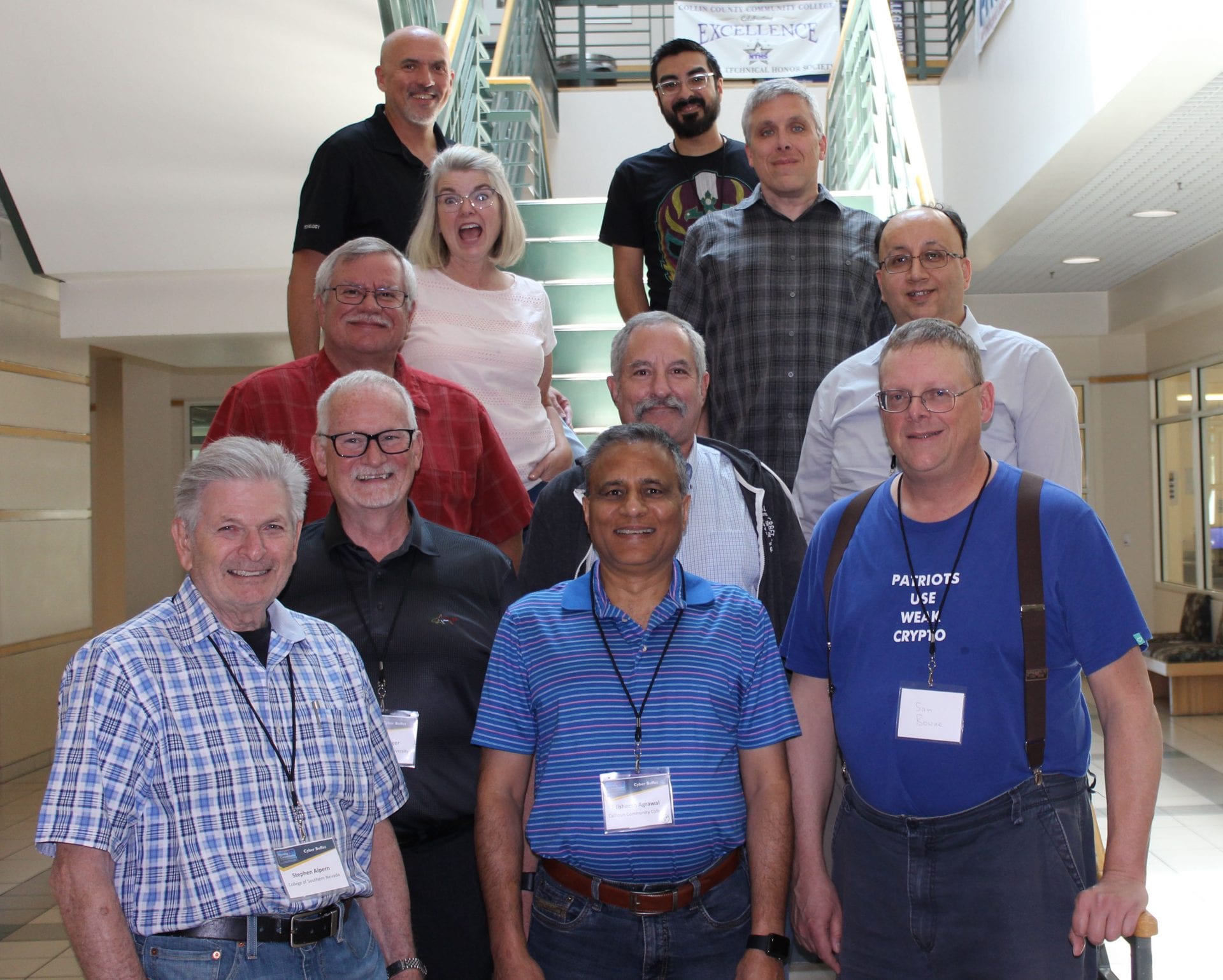CCN Focus Feature: Nisheeth Agrawal

Nisheeth Agrawal (1st row, 2nd person) pictured here with his Cyber Buffet class during 2019 Summer Working Connections.
For the past two years, the National Convergence Technology Center (CTC) has featured blogs that introduced some of our professors and instructors in the Convergence College Network (CCN) community. The CCN is a select cohort of community colleges and universities from across the country that connects IT educators with a wealth of resources to enhance their programs. In this week’s Q&A blog, we’re featuring Nisheeth Agrawal, CS Instructor at Athens State University.
What do you teach? I teach mostly Cybersecurity and Networking courses. Once a year, I teach a course in Software Engineering.
How long have you been a teacher? I have been teaching for almost 23 years. I was at Drake State Community and Technical College (Huntsville) for first 8 years of my teaching career. After that I moved to Calhoun Community College (Huntsville) and in 2019 I left Calhoun and moved to Athens State University (Athens, AL).
Did you have a job in industry before you became a teacher? Yes, I worked as a programmer and later as a systems analyst for over 15 years for NASA contactors. My first assignment was to work on space shuttle main engine. I wrote the software that would start the cooling mechanism if the engine was shut down after firing for any reason. I was a part of a team that trained astronauts on space lab experiments by developing simulators that would simulate actual experiments in space lab. My final assignment was to download data from space station in the early days when we only had tapes for recording data.
What sparked your interest in teaching? I was offered an adjunct position at a community college (Calhoun Community College) to teach an applications course and then programming languages. I enjoyed engaging with students and working with them, so I tried full time teaching. Enjoyed teaching so much that I stayed with teaching positions.
What is the secret to successfully teaching IT to students? I like to work with students on projects and ask them to research current trends to keep them engaged. Doing a lot of hands-on activities works very well for me. Before covid I used to do encryption exercises with students where they would write an encrypted message as a team and exchange it with another team who had to decrypt the message. The team that could decrypt the message won a prize and bragging rights!
What’s the biggest challenge teaching IT? Motivating students and keeping them motivated in class. These days you have to make things simple and engaging to keep them in class. I had students research articles relating to the class (cybersecurity breaches for example) and they had to share their story in class. They had to find something that happened recently.
Do you have a favorite class to teach? If so, why? I love teaching Fundamentals of Cybersecurity/Principles of Cybersecurity because it is the first course in most IS programs and these students are most times eager to learn something new.
What is the best thing about being a teacher? Mentoring a student from start to finish. I have students I taught 20 years ago and when they call me and tell me they are working in the industry making $140k; It is a great feeling to see the success stories.
What advice would you give an IT student about to graduate and enter the workforce? Learning never stops. Once you get a job don’t be afraid to take on something new and keep learning.
IT is always changing – how do you keep up with the ongoing evolution of IT? I always keep up with technology by reading articles, attending workshops, webinars, and conferences. Summer and Winter Working Connections, NICE conference, WASTC conference are the best ones for me to attend.
How do you see the IT landscape changing in the next 5 years? IT sector will continue to evolve. I see more IoT and security issues and more cloud based everything. IoT security is the biggest problem we will continue to have. We also don’t know how secure cloud is, nor how we can make sure it is secure. In other words, security is going to be the biggest issue for IT. I think secure programming will become more and more important because that is what’s causing a lot of problems these days.
What’s your favorite recent student success story? We have a young student who has been in several classes with me. He is already assisting other students by tutoring, and he is running our match and CS student club. He is also running for a position on the SGA. He is a straight “A” student. He is a member of ISSA (Information Systems Security Association) and will be working on some projects with me this summer.
